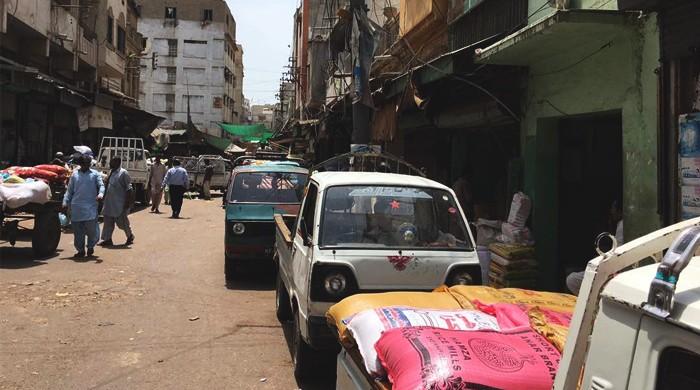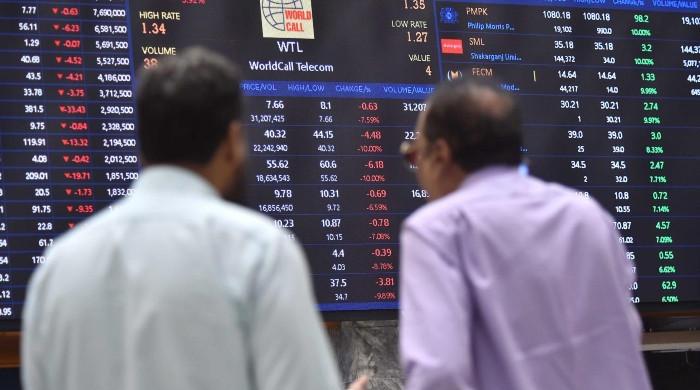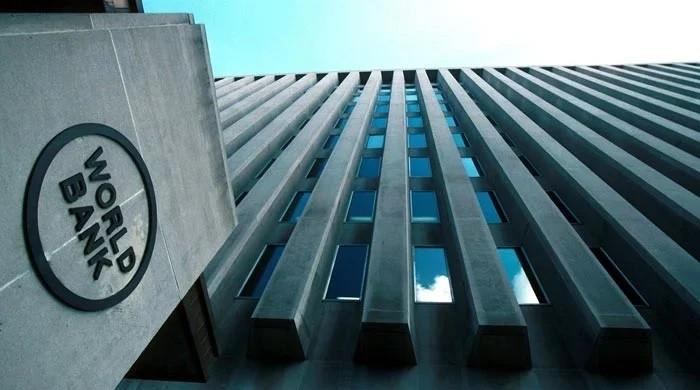Goods transporters' strike: Talks under way, agreement expected soon, says PSMA chairman
The issues will hopefully be resolved before Ramzan due to increasing pressure, says chairman of FPCCI's standing committee on Planning and Economic Affairs
May 12, 2017

The goods transporters’ strike, which continues relentlessly for the fifth consecutive day, has now started to lead to concerns of a price hike right when Ramzan is set to start.
Industry insiders believe that freight charges will consequently shoot up, bumping up variable expenditures, which will likely end up inflating the retail prices.
“Supplies of essential commodities are slowing down across the country, [including a] delay in food supplies to the city and upcountry, with imports brought to a halt as thousands of containers of imported cargo are clogged at the seaports,” another source from the shipping industry explained.
While the problem is giving wind to worries of a spike in essential goods’ prices during the holy month, Jehangir Ishtiaq – chairperson of the Federation Of Pakistan Chambers Of Commerce & Industry's (FPCCI) standing committee on Planning and Economic Affairs – told Geo.tv the issues will hopefully be resolved before Ramzan due to increasing pressure.
Pakistan Soap Manufacturers Association (PSMA) Chairman Abdullah Zaki while speaking to Geo.tv commented, "Almost 13,000 containers —most of which carry food items — are now held up at the Karachi Port's terminals." The official, who has also served as president of the Karachi Chamber of Commerce & Industry (KCCI) earlier, added that talks were underway at present and a settlement was expected to be announced tomorrow.
Major hit to Pakistan's exports
Transporters in Pakistan’s industrial and trade hub entered a strike four days ago to protest heavy vehicles being barred from moving inside the city, due to which goods worth millions of rupees sit immobile in warehouses. This marks a major hit to Pakistan as exports contribute Rs. 6 billion to the economy each year, exporters claimed.
Traders, industrialists, and manufacturers alike have slammed the strikers for causing a severe bottleneck in the supply of basic necessities and other imported goods that sit idle at the port, hoarding the containers, which, in turn, have resulted in export consignments being unable to get loaded and sent off.
“The current state of affairs is already out of hands as outbound ships are leaving without export consignments,” Javed Bilwani, chairperson at the Pakistan Apparel Forum, told Geo.tv.
'Two to three months to clear up the mess'
The Karachi Port’s terminals are at present teeming with containers as the goods transporters’ strike has led to non-availability of heavy vehicles to move imports and exports. The situation has exacerbated to such an extent that the port is almost at its full capacity.
“Approximately 3,000 containers are handled via three terminals every day,” Bilwani mentioned. With operations at the port coming to a complete standstill and containers piling up, the representative said it will take at least “two to three months to clear up this mess”.
Furthermore, many of the city’s manufacturers have run out of stocking space, thereby hindering the process of producing fresh inventory, which means additional losses to come soon apart from container rent expense, transportation cost – that have surged on the back of the strike – and space overhead.
Bilwani went on to state that this will result in many exporters’ letters of credit (LCs) to expire, which means “they will go bankrupt”. He stressed that numerous industrialists are suffering terribly because of the strike.












